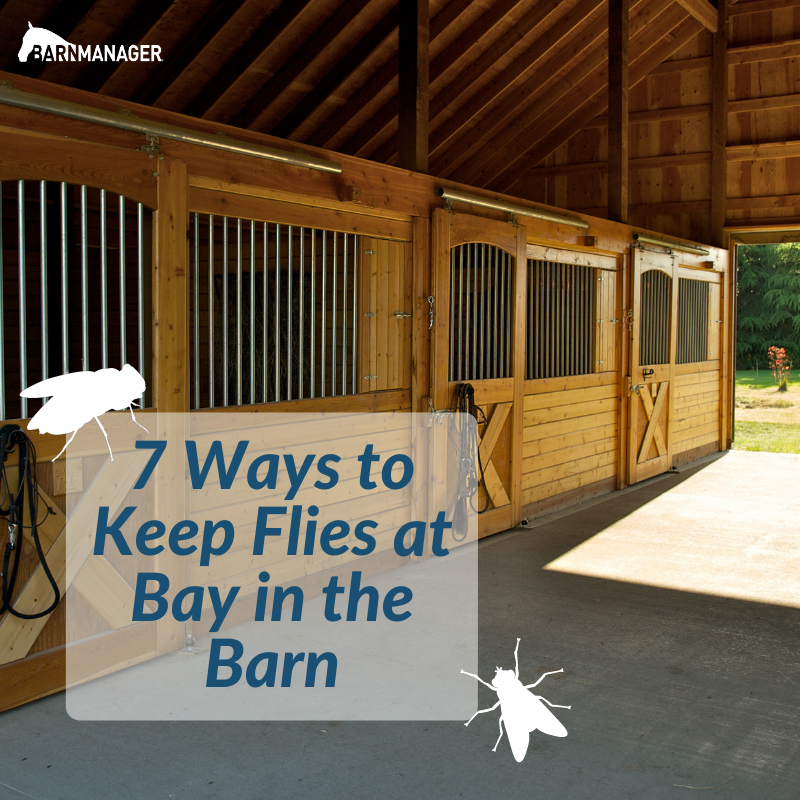
7 Ways To Keep Flies at Bay
As temperatures begin to rise across the country, legions of dreaded house flies make their return to the barn to terrorize our horses. While it may seem like a force we can’t compete against, there are certainly ways to cut down on the number of flies and their impact on horses in the barn. Warmer weather makes it more enjoyable to spend time at the barn with our horses hacking in the fields, grazing, trail riding, and even just grooming, but we have to be aware of the annoyance flies can be for both humans and horses and help protect them from being bitten. Follow some of these tips to cut down on the fly population both inside and outside of your barn.

1. Have an effective manure disposal system.
Manure attracts flies by the dozens, so pick your horses’ stalls frequently and dispose of the manure often. If you have too much manure lying around, even if it’s out of horses’ stalls, flies will be more attracted to your barn.
2. Eliminate standing water.
Although not much can be done about ponds on the property, try to fix spots where standing water gathers, as these are places where flies can reproduce. Install a drainage system if this problem occurs when it rains, and make adjustments around the farm as necessary to help the standing water clear after a storm, such as repaving and angling surfaces.
3. Replace damaged fly sheets.
Fly sheets can protect our horses’ entire bodies while they’re outside grazing, keeping them from being bitten and developing rashes or sore spots from flies. But with time comes usual wear and tear, so be sure to look over and repair or replace any fly sheets that have significant holes.
4. Choose a fly spray you trust.
Fly repellant can often irritate horses’ skin or cause other issues, so try to find a brand with natural ingredients designed to provide only positive effects. Spray your horse before it goes outside, before a ride, and when it goes back into its stall. Keep the bottle at least a foot away from the horse as you spray to avoid causing skin irritations.
5. Implement a fly-spray system in your barn.
If you’ve tried everything and flies still won’t leave, install a system that sprays automatically into the barn aisle and stalls. It can be a worthwhile investment.
6. Seal all food containers.
Treats, open feed bags, and snacks left out can lure flies into the barn. Eliminate food smells by sealing containers, throwing away scraps, and cleaning up crumbs. Don’t skimp on giving your horses treats just to avoid flies, but be sure to clean up after your horse if they drop any bites on the floor.
7. Treat problem areas.
As always, keep a close eye on your horses’ skin to catch areas that might become more sensitive to flies. Often these areas may require a daily fly repellant ointment along with routine fly spray.
While many are grateful for warmer weather (horses included), we are less thrilled to welcome back the flies that disappeared during the cold winter months. They are a part of life for horse owners and managers, so we simply have to learn to lessen their impact so our horses can live comfortably in the warm spring and summer months.